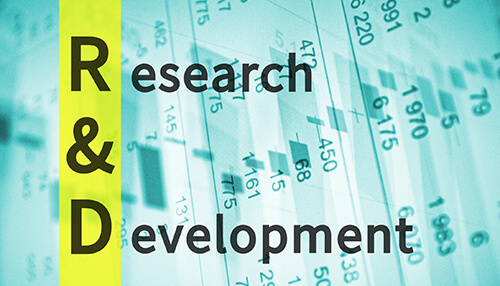It’s possible that your company is striving to enhance already-existing items, processes, or software, or perhaps you’re creating brand-new offerings. Your company may stand to gain from the research and development tax credit since it offers the opportunity to reduce its overall tax liability.
At a high level, to be eligible for the Research And Development Tax Credit, you need to be attempting to develop something new or improved. In other words, there needs to be some uncertainty regarding the technical design, and there needs to be an iterative process of design and testing in place to evaluate different design alternatives. Generally speaking, the qualification conditions for the credit can be met by undertaking activities that involve the development or improvement of a product, the development or modification of a manufacturing process, or the development or enhancement of software.
Who Is Eligible for The Research And Development Tax Credit
Taxpayers are eligible. Entities that are not exempt from paying income tax in Germany and must pay either the total or limited rate are qualified. Non-resident taxpayers are eligible for the credit if they have a significant link to Germany. For instance, a non-resident business with a permanent establishment in Germany is also suitable for credit.
Taxpayers must submit an initial technical request to get an R&D certificate proving that the R&D project meets the requirements for eligibility. The second step is to make an electronic submission to the local tax office to apply for the incentive. The initial request for a certificate during an accounting year is processed free of charge. However, if more than one petition is filed throughout a given fiscal year, a fee may be assessed. The application needs to be backed up by proof of the activities and costs eligible for consideration.
What Are Eligible For The Research And Development Tax Credit
Projects
Research and development initiatives can qualify for funding if a German-based firm carries them out. These initiatives may involve the German-based entity itself, other German-based institutions (such as universities), third-party or associated contractors headquartered in Germany, or any other EU/EEA member state, etc. Concerning contract research, the new legislation presents an immense number of chances for tax optimization, particularly in international commerce. In addition, research and development activities can also be carried out through a collaborative effort involving one or more beneficiaries, at least one other business, or an institution dedicated to the research and dissemination of information.
Activities
Activities would qualify for eligibility if they were initiated after 2019 and qualify as either fundamental research, industrial research, or experimental development according to the regulations of the EU, and activities that focus only on increasing production system efficiency or market acceptance are ineligible.
Small Businesses
Small businesses are also eligible for The Research And Development Tax Credit. As part of the Protecting Americans from Tax Hikes (PATH) Act of 2015, the tax credit was extended indefinitely. Before the passage of this law, the research and development tax credit could only be utilized to reduce the amount of standard tax liability. If they were exposed to an alternative minimum tax, many small and medium-sized firms would be unable to use the credit because of this regulation (AMT). This is particularly relevant for many people who own pass-through organizations.
The R&D tax credit was made permanent, and with it came an improvement that was designed to be of special assistance to small enterprises. R&D tax credits can now be claimed against alternative minimum tax liabilities by “qualified small firms.” The definition of an eligible small business is a company that had less than $50 million in average gross receipts, also known as revenues for the three years before the most recent one.
Expenses
Expenses are considered permissible for qualifying R&D projects or activities and fall into one of the two categories listed above.
1. Wages are subject to the German wage tax or expenses to secure their future. These include contributions to statutory pension funds, for and to and to the extent that employees conduct eligible R&D and provide that the taxpayer offers to the tax agency assistance for the expenditures in the form of verifiable documentation showing, for example, an allocation of employees’ wages between qualified activities.
2. Payments are made to qualified independent contractors. A contractor doesn’t need to provide itemized substantiation of the costs associated with their people.
BMF Position On Die Steuergutschrift Für Forschung Und Entwicklung
According to the BMF, the awarding of contracts between affiliated companies is not always characterized by one of the affiliated companies carrying out the R&D activity based on contractual arrangements typically made between third parties. This is because such agreements are usually made between third parties. In most cases and most situations, a charge is not always agreed upon for the given services. In its place, the research company will typically be compensated with a cost-reimbursement and a percentage profit mark-up. This occurs regardless of whether or not the Die Steuergutschrift Für Forschung Und Entwicklung endeavor is successful.
And so, after deliberation, the BMF came up with several criteria that, when collectively satisfied by linked businesses, result in the presumption of contract research. If not all of the requirements are met, it is necessary to presume that the “contracting” company conducted some in-house research. When dealing with specific import structures, the domestic corporation may submit its application for the research allowance. The request for the research allowance and its subsequent approval are both subject to a two-step process.
1. In order to qualify for the research allowance, one must first apply for a certificate declaring that the project in question meets the criteria for an approved R&D endeavor.
2. The next step is to fill out and hand in an application to the tax office in order to get the research allowance. As a kind of evidence, the research works and total time taken must be documented. It is clear from the invoices issued and the contracts that the research done on agreements was recorded.



